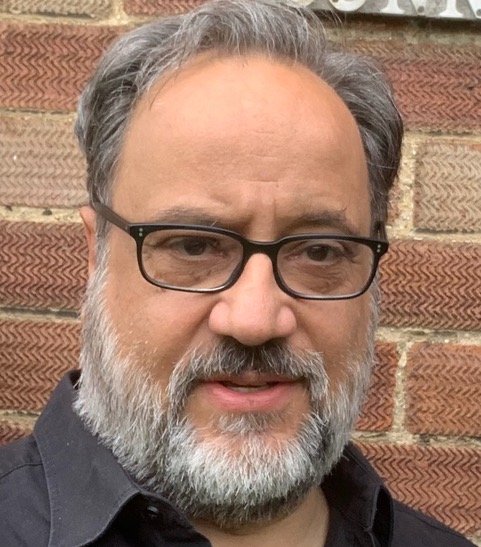 Isaiah 2:2-5
Isaiah 2:2-5
In days to come the mountain of the Lord’s house shall be established as the highest of the mountains, and shall be raised above the hills; all the nations shall stream to it. Many peoples shall come and say, ‘Come, let us go up to the mountain of the Lord, to the house of the God of Jacob; that he may teach us his ways and that we may walk in his paths.’
For out of Zion shall go forth instruction, and the word of the Lord from Jerusalem. He shall judge between the nations, and shall arbitrate for many peoples; they shall beat their swords into plowshares, and their spears into pruning-hooks; nation shall not lift up sword against nation, neither shall they learn war any more. O house of Jacob, come, let us walk in the light of the Lord!
When pumpkin spice turns to gingerbread in our nation’s coffee houses, it can mean only one thing: the mad dash to the 25th has started. Oddly enough, for those in many of our churches, the opposite has happened: Advent has begun and with it our annual season of waiting and darkness, of wreaths being made and candles being lit.
Yet Advent is also a season of surprise, perhaps the season of surprise.
To wit, when Isaiah describes the object of our Advent waiting—what it is we’re waiting for—he drops two major surprises. First, he claims that all the nations shall stream to the house of the Lord. Not just nation, singular. This would have been a surprise to his audience, the ‘chosen’ nation of Israel. But according to God’s prophet, the scale of the good news exceeds our expectations and bursts our carefully maintained bubbles.
The second surprise Isaiah “spoils” might be the more astounding one. He speaks of a God who will beat swords into plowshares and spears into pruning hooks. The coming Lord will not be a militaristic king to conquer and crush a la David, but a prince of peace, who will transform instruments of aggression into tools for cultivation and creation.
Alright, so it sounds like Isaiah’s words would have been a surprise to the men and women who first heard them. But what about those of us situated on the other side of the incarnation? Does Christ’s coming retain its surprise for you and me?
Well, even if we’re the non-violent sort who has never even held a weapon, still, when hurt, we strike out. We retaliate, internally at least. Something in our DNA seems drawn to cause and effect, to reward and punishment and deserving. I mean, who among us isn’t deeply surprised—and maybe skeptical or offended—when someone who we’ve wounded withholds judgement, or refuses to exact consequences?
Christ upsets the apple-cart of our this-for-that way of thinking. He defies our expectations – which is part of what gets him killed. And yet, the carpenter from Nazareth keeps the surprises coming until the very end, rising from his three-day grave and returning to disciples with open arms rather than a wagging finger.
Perhaps this is why the writer Leslie Jamison would claim that, “Surprise is an important part of grace. You thought you wanted cookies, but you really needed seltzer. Grace isn’t the thing you planned, it’s what you get instead. It’s not a product of moral cause-and-effect. It catches you off guard, often in the form of a thwarted narrative, or a plotline we write for ourselves getting overturned. Surprise is sometimes my working definition of God.”
December means that many of us are in the season where we’re going quickly from one thing to the next, our shoulders to the grindstone. Sometimes we get so bogged down in the day to day that we start to believe there are no surprises left. After all we have people relying on us, responsibilities to uphold. The last thing we want is for our ‘narrative’ to be thwarted. And yet, experience tells us, that that is how God’s grace often arrives, as “a plotline being overturned.”
My clergyman brother tells the story of meeting with a couple who wanted to get married, Seth and Amanda. At first blush, they were so bubbly, so ‘compatible’ that my brother was honestly concerned. There didn’t seem to be much, well, reality in evidence. But then he got a bit of a surprise. He asked them how they got together. They met online, went out on two dates, both of which fairly well. Not amazing, but enough to warrant a third. On the way to their third date, Seth had a seizure while driving and wrapped his car around a telephone pole. He didn’t know he was an epileptic, so this is how he found out. The doctors said he’d be in the hospital for a minimum of six months.
Needless to say, Amanda found herself in an awkward position. Her friends, trying to be supportive, counseled her to cut her losses. “You’ve only been on two dates. Everyone would understand if you decided to check back in once he’s out of the hospital.” And yet, when Seth finally opened his eyes, much to his surprise, the first person he saw was Amanda. And in that moment he knew she was the woman he wanted to marry.
Which is why Seth could look my brother in the eye and tell him that, as crazy as it sounds, that seizure was the best thing that ever happened to him.
The surprise of Advent is that darkness is not all there is. Not for the world and not for you. The narrative of consequences and condemnation has been thwarted.
What’s more, it will be thwarted again. Amen.
David Zahl is the executive director of Mockingbird Ministries (mbird.com), co-host of The Mockingcast (Chip’s favorite podcast), and author of Seculosity: How Career, Parenting, Technology, Food, Politics, and Romance Became Our New Religion and What To Do About It. He will return to Camp Arcadia in 2020 to lecture during family week 7 – August 8 – 15.


